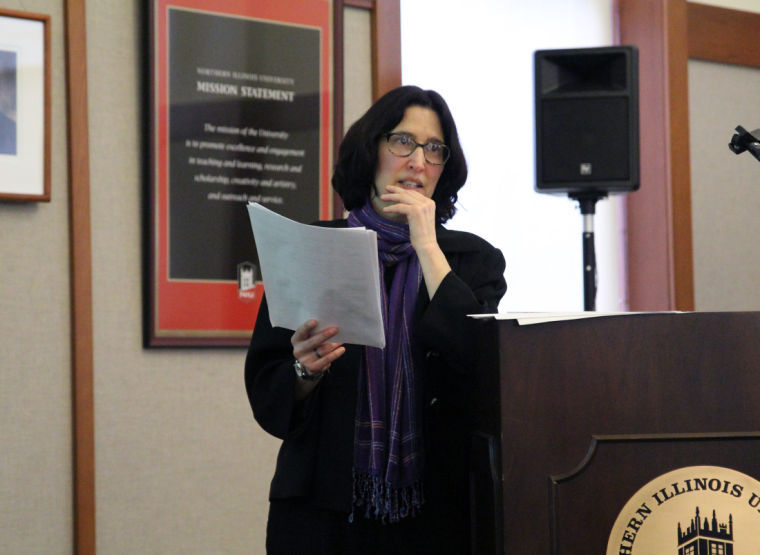Hoarding part of culture
Sociology professor Diane Rodgers speaks about the sociological effects of hoarding and how America’s hoarding isn’t psychological but cultural Tuesday in Altgeld Hall. She spoke about this topic during the lecture event The Social Spaces of Hoarding. The event was held to support the hoarding art exhibition.
April 1, 2014
With sentimental objects and a ridiculous amount of knick-knacks, the sociological aspect of hoarding was explored Tuesday in Altgeld Hall to support the hoarding art exhibition.
According to the Self-Storage association, America has more than 52,500 storage facilities. Compared to other countries, Canada second with 3,000, U.K. third with 1,200, and Australia fourth with 1,000, America’s hoarding isn’t psychological but cultural, said Diane Rodgers, associate professor of sociology.
“If hoarding is psychological, the numbers would be similar. It’s a part of our culture,” Rodgers said.
The era of hoarding began when post-World War II families began to move to the suburbs and boarding houses began to decline.
As people purchased homes with the little possessions they had, they needed more to fill the empty spaces within the house. People had credit at the time to purchase whatever they wanted.
“Hoarding is equal to stuff plus space,” Rodgers said. “You need both for a person to be hoarding.”
Over the years, houses began to grow bigger and better to carry all the materials people had in the United States. When houses were filled, many people invested their money in self-store facilities.
In college life, its especially a good time to live with others and see if you can survive with less stuff, Rodgers said.
Senior sociology major Ebony Brown said she always wanted a big house, but is now reconsidering. Brown said people can’t help but hoard; it’s a social problem.
“It doesn’t make any sense when I have extra space and people don’t even have a place to stay,” Brown said.
Junior economics major Lindsay Kiehl said hoarding is about keeping a ridiculous amount of things for unnecessary reasons, and there’s a psychological reason behind it.
“I can say my mother is slightly a hoarder, but, I mean, everyone is,” Kiehl said.



